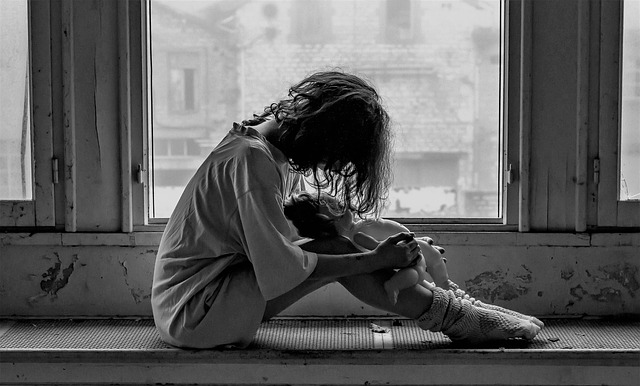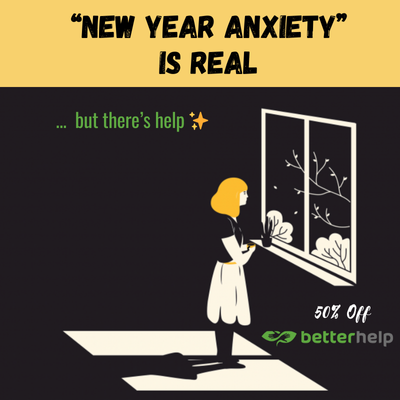It isn’t exactly uncommon for us to use the phrase, “Someone else has it worse than you.”
I’ve heard it said to other people, and I know it’s been said to me before.
Here are some instances where this phrase often comes up:
You hear this phrase used when someone states that they are dealing with depression or anxiety and someone else wants to remind them that they can at least leave the house or shower or do pretty much anything else that some others who are also dealing with these mental illnesses can’t bring themselves to do.
You hear this phrase used when someone brings up the fact that they have been hurt or are angry from childhood emotional abuse, and someone else wants to remind them that at least it wasn’t physical or sexual abuse—then they’d really have a reason to complain.
You might even hear this phrase used in terms of certain social justice movements, such as feminism (“you women here in America don’t have it that bad, at least you aren’t in Afghanistan where women have been stoned to death if they’re accused of adultery”) or LGBT issues (“gay people have it so good here, compared to Russia, where the police rounded up, beat, and humiliated multiple gay and bisexual men”).
In some caess, these statements are factual: there are people who have a harder time existing than others. I’m glad that I live in a country where I can marry a woman if that’s what I choose, and if I were to choose to marry a man, I wouldn’t be murdered for cheating on him.
And maybe, if the purpose of this phrase was to remember how bad some people have it, to take a moment to sympathize with those who have undergone intense abuse, who are dealing with depression so crippling that they can’t get out of bed in the morning, whose government, legal system, and society have completely failed them, maybe then I wouldn’t have a problem with this phrase.
But I don’t really think that that’s the purpose behind someone saying this.
When I hear someone say, “someone else has it worse than you,” what I hear is “stop complaining.” I hear them saying that the way you feel, the difficulties you face, aren’t important enough to matter.
I hear them say that it doesn’t matter that your depression makes you feel empty inside, or that you are considering suicide because of it; someone else has it worse.
I hear them say that it doesn’t matter that you have had to question everything you have been told, that you have to challenge your entire vision of the world and of yourself, because you have endured years of emotional abuse; someone else has it worse.
I hear them say that it doesn’t matter that women in America rarely receive justice when they are raped, or that LGBT people in America are disowned by their families and face hate crimes; someone else has it worse.
And the thing about this phrase is that, at the end of the day, it really isn’t helpful. It doesn’t make the other feel as though they have been understood. It doesn’t put them on the path toward healing. All that it does is make them feel guilty for how they feel, make them feel like they were wrong to speak out in the first place, and that they have to repress their pain—because someone else has it worse.
And never, in the history of the universe, has a problem ever been fixed by ignoring it.
Mental illnesses do not just go away. Pain does not heal if you won’t even admit that you feel it. Injustices do not stop existing if we do not confront them. When it comes to all of these problems, they need to be talked about and worked through. If you don’t, then they only ever get worse.
And saying “someone else has it worse” creates an environment where it’s very difficult to talk about these problems, because the entire purpose of this phrase is to make the one experiencing difficulty feel selfish and entitled for having a hard time at all.
So if you are someone who has said “someone else has it worse,” then please don’t say it to anyone else. It isn’t helping them, and it most certainly isn’t helping the people who might, in fact, have it worse. You do not help women who are being stoned to death for adultery by silencing women who don’t get to see their rapist punished by law.
And if you are someone who has been told “someone else has it worse,” and you don’t want to speak up because of it, then please, by all means, do speak up. Don’t let someone else make the way that you feel seem like a burden. Because you feel the way that you do for a reason, whether that reason be something that has happened to you or a mental illness that you can’t control. And if you want to get better, if you want to overcome this pain, then you need to speak up. You need to reach out, whether it be to a doctor, a friend, a family member, a blog, a journal, whatever it might be.
Because, honestly, think about it in terms of physical health: would you ignore a broken leg, allow it to remain just so forever, because someone else has an amputated leg? Honestly, what sort of sense would that make?
~
~
~
Author: Ciara Hall
Image: Pixabay/3938030
Editor: Travis May
Copy Editor: Callie Rushton
Social Editor: Emily Bartran










Read 2 comments and reply